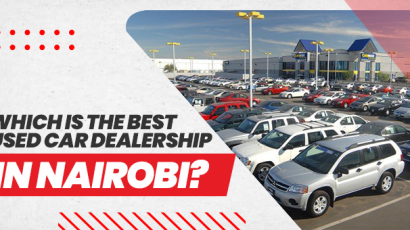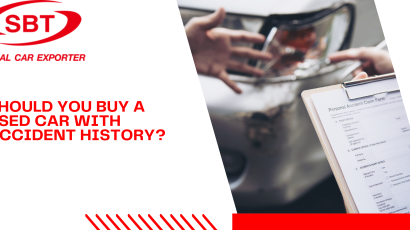
For the most part, purchasing a used vehicle is often a wise financial move. However, choosing where to buy it is just as crucial. You have two primary options: purchasing from a dealership or a private seller. Either option comes with pros and cons, and the right one depends on your priorities, budget, and confidence in assessing vehicle conditions. In this blog, we will break down the key differences and help you decide which is the better choice for you.
Benefits of Purchasing from a Dealership
1. Reliable Vehicle History and Inspection
When you buy from a dealership, one of the prime benefits includes the guarantee of a reliable vehicle history. Reputable dealerships typically conduct thorough inspections to ensure the car is in good condition. Moreover, they provide a detailed vehicle history report, revealing essential information such as previous accidents, service records, and title status.
In contrast, private sellers may not be transparent about these details or might not have the documentation to verify the vehicle’s history. If you’re not confident about inspecting the car yourself, a dealership’s inspection can offer peace of mind.
2. Extended Warranties and Certified Pre-Owned Programs
You can often find certified pre-owned (CPO) vehicles at dealerships, which have longer warranties and other perks. These vehicles usually include newer models that come with a lower mileage and have undergone stringent inspections. Dealerships may also provide extended warranty packages on other used vehicles to cover major repairs after the purchase.
On the flip side, private sellers sell cars “as-is.” If the car breaks down after purchase, you bear the entire repair cost, which could quickly add up.
3. Financing and Trade-In Options
The availability of various financing options is another benefit of purchasing from a dealership. Many dealerships work with financial organizations to offer loans, thus ensuring ease for buyers, especially if they have good credit. Additionally, dealerships often allow trade-ins, which leads to lower total payment for the new vehicle.
On the contrary, if you buy from a private seller, financing options are limited. Unless you arrange a personal loan, most private sales are cash-only deals. Moreover, they don’t offer trade-ins, either.
4. Legal Protection and Consumer Rights
Dealership purchases typically come with legal protections. Dealerships must comply with regulations, and many jurisdictions have “lemon laws” that protect buyers in the case of undisclosed major defects. Therefore, in case something goes wrong, you will have legal options to deal with it.
On the other hand, if you purchase from a private seller, it can be riskier. If the car develops problems, you may find that taking legal action is difficult. Private sellers usually have no obligation to offer refunds or resolve disputes.
Drawbacks of Purchasing from a Dealership
1. Higher Prices
If you are buying a secondhand vehicle from a dealership, the biggest drawback is often the higher price. Dealerships need to cover overhead costs, such as employee salaries, rent, and marketing, which can result in higher markups on the cars they sell. Dealerships may also charge additional fees for paperwork and processing, making the final cost higher than the initial price.
2. Pressure and Upselling Tactics
Car dealerships are infamous for using forceful sales tactics. Commissions incentivize salespeople and may pressure you into buying additional services or packages, such as extended warranties or service plans that you may not need. This pressure can be overwhelming for inexperienced buyers, leading to higher costs or an unplanned purchase.
Advantages of Buying from a Private Seller
1. Lower Prices and Room for Negotiation
Private sellers often have lower prices. This is because they don’t have the same overhead costs as dealerships and are usually looking for a quick and straightforward sale. This lower cost can be an appealing factor if you’re on a tight budget.
Additionally, there is more opportunity for negotiation with private sellers. Many sellers are motivated to sell quickly, and you can often negotiate the price down, especially if the car has been on the market for a longer time.
2. No Dealer Fees
Private sales are more straightforward and come without extra costs like dealer fees, which can save you hundreds or even thousands of dollars. The final price you negotiate with the seller is usually the total amount you pay.
3. Personal Connection and Transparent History
You have the opportunity to meet the previous owner when you buy from a private seller. This direct interaction can be advantageous, as you can ask specific questions about how the car was maintained, any issues it had, and why the owner is selling. A seller with nothing to hide is more likely to provide transparent answers, giving you valuable insights into the vehicle’s condition.
Disadvantages of Buying from a Private Seller
1. Lack of Legal Protection and “As-Is” Sales
When buying from a private seller, you’re purchasing the car “as-is.” This means there are no warranties, and if an issue occurs after you drive it off, you’re responsible for the repairs. There’s also limited legal protection, making it harder to address undisclosed problems.
2. No Financing Options
Private sellers usually expect full payment upfront, which can be a financial burden if you don’t have the funds available. While you can arrange for a personal loan, this process is less convenient than dealership financing.
3. Uncertainty of Vehicle Condition
Unless you’re a knowledgeable mechanic or bring one along, assessing the true condition of a car sold by a private seller can be challenging. Unlike dealerships, private sellers rarely perform comprehensive inspections or offer certified vehicles. Therefore, you must be diligent and willing to conduct an in-depth evaluation yourself.
Key Factors To Ponder When Choosing Your Vehicle
1. Budget
If your budget is tight, buying from a private seller may be the best option, as they can offer a lower price. However, you need to weigh the risks of unforeseen repairs and a lack of warranties against the initial savings.
2. Level of Trust
If you’re not confident in your ability to inspect a car or if you want peace of mind, opting for a dealership with certified pre-owned programs and warranties is the safer route. Conversely, if you have experience with cars or can hire a trusted mechanic, a private seller might work for you.
3. Flexibility in Financing
If you require financing, a dealership is the better option. While dealerships offer trade-ins and loan options, private sellers typically expect cash deals, making them less flexible in terms of payment.
Bottom Line
So, is it better to buy a used car from a dealership or a private seller? Ultimately, it is about your priorities and circumstances. Dealerships offer reliability, warranties, financing options, and legal protections, making them ideal for cautious buyers who value peace of mind. On the other hand, private sellers offer lower prices, direct negotiations, and a more personal buying experience, which can be appealing if you have the knowledge and confidence to evaluate the car thoroughly.
Consider your budget, level of trust, and financing needs to make the best decision. Whichever option you choose, remember to do your research, ask questions, and inspect the car carefully to ensure a smooth and satisfying purchase experience.
Explore the Honda Accord 2013 price in Nigeria to find the best deals available in the market.











